Alberta Regulations
Albertans can wager on a broad range of legal landbased gambling products, including slot machines, casino table games like blackjack and roulette, poker, bingo, and lotteries. Online gaming remains unregulated for the time being.
However, the province has already taken some steps toward introducing online regulations. Albertans are not legally prosecuted for gambling at websites licensed in offshore jurisdictions. Landbased gambling is regulated under the Gaming, Liquor and Cannabis Act.
The Alberta Gaming, Liquor and Cannabis Commission oversees the authorized gambling operators in the province. The Commission consists of a chief executive and up to nine members appointed by the Lieutenant Governor. It licenses, regulates, investigates, and audits registered gaming operators.
The agency has adopted a charitable gaming model, which is to say only religious and charitable organizations can conduct gambling operations. Private entities can only supply gaming software and services to authorized charity organizations.
Under the terms of the Gaming, Liquor, and Cannabis Act, minors cannot enter licensed gambling facilities like casinos and racing entertainment centers. The same goes for intoxicated individuals who cannot partake in gaming activities and lotteries held in licensed facilities (Part II, Section 37.2).As for the legal gambling age, it is 18 years old in the province of Alberta. The AGLC is not accepting new license applications for casinos as of January 2020.
British Columbia Regulations
Located in the southwestern region of the country, British Columbia regulates its gambling industry under the provisions of the Gaming Control Act of 2002. The gambling sector in BC is thriving, with total revenue of CA$1.4 billion for 2017 and 2018.
Residents of the province have access to a variety of traditional, i.e. landbased casinos, most of which are located around the capital Vancouver. Individuals must be at least 19 years old to gamble legally. Online gaming is also permitted via licensed websites such as PlayNow.
The Gaming Control Act allows for one-time betting events for social purposes, charitable gambling, and state gambling. BC authorities can establish casinos operated by a state corporation. The allowed products include horse race betting, lotteries, slots, fundraising draws, and casino games like blackjack and roulette.
Gambling activities fall under the scrutiny of the Gaming Policy and Enforcement Branch of the Ministry of Finance (GPEB). The GPEB issues licenses to approved gambling operators and oversees them to ensure their compliance. This entity is responsible for the overall integrity of gaming and horse racing in British Columbia. It is governed by a general manager appointed by the Minister of Finance.
Manitoba Regulations
Gambling in the province of Manitoba is regulated under two key laws, the Liquor, Gaming and Cannabis Act and the Manitoba Liquor and Lotteries Corporation Act. The second statute outlines the rules that govern the operation of authorized lotteries and video lottery terminals in the province.
There is a limited number of landbased casinos here, including the Sand Hills Casino in Carberry and the Swan Lake First Nation Gaming Center in Headingley. Manitoba residents have the option to gamble online at locally authorized gaming sites.
One example is PlayNow (launched 2013) which is operated by the British Columbia Lottery Corporation (BCLC) in partnership with the local provincial authorities. The gambling industry in this province is regulated by the Manitoba Liquor, Gaming and Cannabis Authority (MLGCA), which has a minimum of seven board members, a chairman, and a vice chairman.
In relation to gambling, the MLGCA is mandated with regulating gaming events and ensuring the integrity of gaming and lotteries in the province. It also performs background checks on licensed gaming operations. Manitoba players can engage in gambling activities legally as long as they are at least 18 years old.
Ontario Regulations
As one of the largest provinces in Canada in terms of territory, economic development, and population, Ontario has a thriving gambling sector. Residents have a choice from a wide range of gaming products, including bingo, slot machines, card games, and lotteries. Playing online is also possible at the authorized website of PlayOLG.
The gaming sector in Ontario was shaped by two key statutes. The first one is the Gaming Control Act of 1992, which outlines the legal forms of gambling and the requirements authorized operators must cover.
To be more specific, Sections 10 and 11 of this statute deal with the registration and conditions for gaming assistants and suppliers while Sections 19 through 28 explain the different aspects of the regulation process.
The second statute that governs gambling activities in this province is the Ontario Lottery and Gaming Corporation Act of 1999. This one outlines the general principles of operations of the local regulatory authority, the Ontario Lottery and Gaming Corporation (OLGC). It contains information about the powers of this agency, its requirements for gambling sites, and its funding.
Quebec Regulations
Residents of Quebec, who are at least 18 years old, have a choice from several state-controlled landbased casinos but online gambling is also available. The main statute that governs the field of gaming in this French-speaking province is Loi sur les loteries, les concours publicitaires et les appareils d’amusement,which translates roughly as the Act on Lotteries, Public Contests, and Amusement Machines.
It provides important information about what forms of gaming are legal in Quebec along with detailed descriptions of each of them. There is also information on the licensing process, the obligations of the licensees and the regulator, and the penalties imposed on violators.
The Act also outlines the maximum number of video lottery machines (including slots and any other games governed by a computer) authorized racetracks and state-controlled casinos are permitted to operate. The Montreal racetrack, for example, can hold no more than 125 machines while the racetracks in Quebec City and Trois-Rivières are entitled to a maximum of 100 and 50 machines, respectively.
There are two regulating authorities in Quebec, the first one being Regie des alcools, des courses et des jeux. It regulates the operations of companies in the sector of gambling, public lotteries, horse racing, and alcohol.
There is also the Quebec Lottery Corporation (Societe des loteries du Quebec). Apart from regulating gambling halls, lotteries, and bingo games throughout the province, this entity possesses the gaming equipment in them.
Nova Scotia Regulations
Nova Scotia casino buffs can engage in gaming activities as long as they are at least 19 years old. This eastern province is home to a broad network of landbased gambling halls, dominated by slot machines. Online casinos are also permitted.
Atlantic Lottery (Loto Atlantique) is the only licensed gambling site in Nova Scotia. However, residents have unrestricted access to various Canada-friendly offshore casinos since the local authorities do nothing to ban such websites. Atlantic Lottery offers online bingo, instant-win games, online lotteries, and sports betting.
The gambling sector in Nova Scotia is controlled under the provisions of the Gaming Control Act. It contains key information on licensing procedures, the measures in case of violations, rules of play, and the admission rules for individuals entering the gaming halls. Section 100 stipulates that “no person under the age of majority [19 years old] shall play a game in a casino”.
Gaming licenses in Nova Scotia are issued by the local Alcohol, Gaming, Fuel, and Tobacco Division of Service. It also handles disputes, processes complaints, and scrutinizes all activities in the field of gambling.
Saskatchewan Regulations
The prairie province of Saskatchewan is home to regulated landbased and online gaming sectors, open to all residents who are at least 19 years old. The province also birthed Canada’s first casino run by indigenous people, the Bear Claw Casino & Hotel, governed by the Saskatchewan Indian Gaming Authority.
Several pieces of legislation have shaped the province’s legal gambling landscape, but the most important one is the Alcohol and Gaming Regulation Act of 1997. It outlines the basic rules on gambling, the general provisions regarding permits, and the fees operators are required to pay.
The permitted forms of gambling in Saskatchewan include conventional casino games like roulette and blackjack, Texas hold’em poker, slot machines, raffles, bingo, and horse race betting. Players are not taxed on their profits unless they are professional gamblers.
Online gambling was possible at the Northern Bear Casino but it shut down in 2014 for financial reasons. The Saskatchewan gambling industry is overseen by the Saskatchewan Liquor and Gaming Authority (SLGA) but there are also indigenous regulators, such as the afore-mentioned Saskatchewan Indian Gaming Authority.
New Brunswick Regulations
New Brunswick residents and visitors can legally participate in several forms of gambling, including lotteries, video lotteries, harness racing, and charitable gaming. The province is home to two landbased casinos, Casino New Brunswick and Grey Rock Casino, where players can enjoy slots, table games, and poker.
New Brunswick’s field of gaming is regulated under the provisions of the Gaming Control Act of 2008, which states that persons should be “registered as suppliers or gaming assistants” (Section 86 (f)) to legally provide such services.
The Act also offers insights into authorized lottery schemes, the regulation on authorized gambling providers, and registration. Other than that, the sector is regulated by the Gaming Control Branch of the Department of Public Safety.
Prince Edward Island Regulations
As in other provinces, gambling in Prince Edward Island (PEI) is a common activity. Roughly 4/5 of the adult population participates in gaming at least several times per year as reported by the local Lotteries Commission in September 2008. Lotteries, charitable gaming, and instant-win tickets rank among the most widespread forms of gambling.
There are five or so landbased casinos but playing online is also possible. The minimum gambling age in the province is 19 years old. The main law to govern betting activities here is the Lotteries Act, which states that every individual who “contravenes a provision of the Act […] is guilty of an offense and liable on summary conviction” (Section 18). The fines range from CA$2,000 to CA$10,000. Gaming activities are overseen by the Prince Edward Island Lotteries Commission.
Newfoundland and Labrador Regulations
The newest of the ten Canadian provinces, Newfoundland and Labrador, has no landbased casinos for the time being. While casino-style landbased gambling is still not legal here, residents can participate in lotteries or bet on horse and harness racing.
There is also the option to legally engage in online gambling via the website of the Atlantic Lottery Corporation, which offers its products with the permission of the Newfoundland and Labrador provincial government. Its range of services spans instant-win games, 6/49 lotteries, keno, bingo, and sports betting.
The Consumer Affairs Division, Consumer and Commercial Affairs Branch of Service NL issues permissions for games of chance, bingo, lotteries, and card games but only if the applicants are non-profit or charitable organizations (check Lottery Definition section).
Gambling in Canada’s Three Territories
Apart from its provinces, Canada has three territories, Yukon, Nunavut, and the Northwest Territories, whose governments’ powers are assigned by the Canadian Parliament. These are beautiful regions with a low-density population, which creates perfect conditions for the development of tourism.
However, the gambling industry here remains largely undeveloped, with only a single landbased casino (Yukon’s Diamond Tooth Gertie’s Gambling Hall) in all three territories. The Diamond Tooth is run by the non-profit organization Klondike Visitors Association, which reinvests all its profit back into Dawson City where the casino is located.
Other than that, residents of the territories can gamble on lotteries, operated by the Western Canada Lottery Corporation. The latter is a non-profit organization that operates with the permission of the Alberta, Manitoba, and Saskatchewan governments. Charitable and religious groups can legally offer one-time bingo and sports draft lotteries. Some venues in the territories also offer video lottery terminals.
As for online casino gambling, there are no such websites registered in any of the three territories. The locals can participate in sports draft lotteries via the SportSelect website. With that in mind, residents are not restricted from accessing casino sites licensed in foreign jurisdictions where they have a wealth of gaming options to choose from.
Like in any other jurisdiction, Canada has its own set of rules that govern gambling within its territory. The country has a complex gambling landscape where legalities are concerned because regulations and legislation vary in individual provinces. Canadian residents can gamble online without the fear of prosecution.
Let us start by clarifying there is no division between the regulation of virtual and landbased gambling in Canada, i.e. individual rules for online gaming are lacking. Gambling activities in the country are governed on a federal level under the Criminal Code of Canada, and more particularly by Sections 201 through 206.
According to the Criminal Code, the category of gambling activities comprises bingo, casino games, lotteries, slot machines, poker, video lottery terminals (VLTs), sports betting, and other card games. The Code also prohibits some activities that are not necessarily seen as gambling from the perspective of laymen.
Each provincial government in Canada is permitted to exercise individual control over the selection of available gambling products, the places where said products are legally offered, and the way they are marketed.
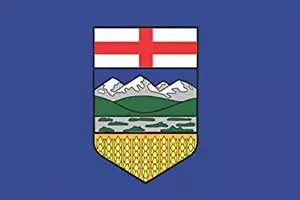 Alberta Regulations
Alberta Regulations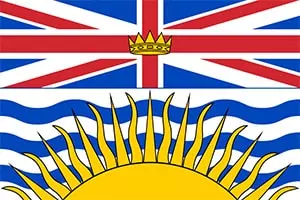 British Columbia Regulations
British Columbia Regulations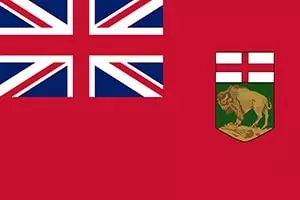 Manitoba Regulations
Manitoba Regulations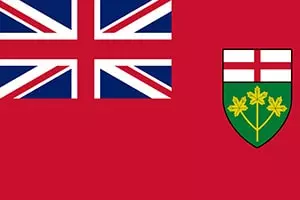 Ontario Regulations
Ontario Regulations Quebec Regulations
Quebec Regulations Nova Scotia Regulations
Nova Scotia Regulations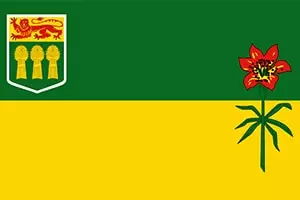 Saskatchewan Regulations
Saskatchewan Regulations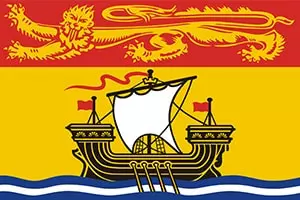 New Brunswick Regulations
New Brunswick Regulations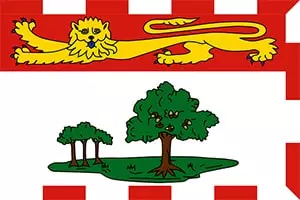 Prince Edward Island Regulations
Prince Edward Island Regulations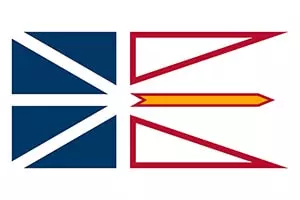 Newfoundland and Labrador Regulations
Newfoundland and Labrador Regulations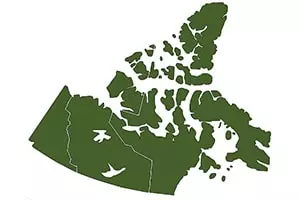 Gambling in Canada’s Three Territories
Gambling in Canada’s Three Territories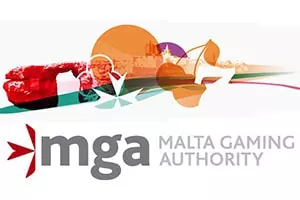 Legality of Offshore Gambling Operators
Legality of Offshore Gambling Operators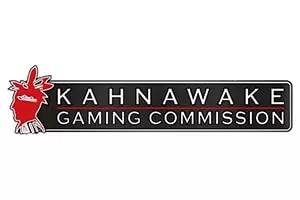 Operators Overseen by the Kahnawake Gambling Commission
Operators Overseen by the Kahnawake Gambling Commission